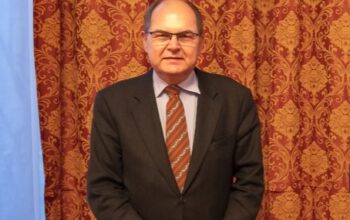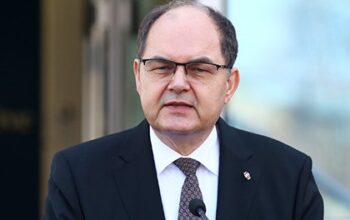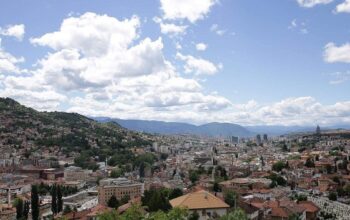Last year, the BiH Constitutional Court nullified the BiH Election Law’s provisions on the election of delegates to the Federation House of Peoples. The Court’s decision requires the BiH Parliamentary Assembly to amend the law. So far, members of the Assembly—particularly those from the SDA and other Bosniak parties—have failed to exert the necessary political will to make the Election Law consistent with the BiH Constitution. As a result, there have been calls by a few in the media and international community for the High Representative simply to impose a change to the law. As a matter of law and sound policy, however, the necessary amendments must result from a compromise within BiH, not an illegal decree by the High Representative.
The provisions of the Election Law recently nullified by the Constitutional Court have, for years, helped the Bosniak parties to dominate the Federation House of Peoples, contrary to constitutional safeguards. Bosniak political leaders took advantage of the Election Law’s provisions that enable “Croat” and “Serb” representatives to be elected by the larger Bosniak population instead of being elected by their own Constituent Peoples. The leader of one of the Croat parties, Božo Ljubić, challenged those provisions in the BiH Constitutional Court, and the court held them unconstitutional in December 2016. The court determined that the provisions violated the equality of Constituent Peoples by failing to provide them adequate political representation.
Because the BiH Parliamentary Assembly failed to make the necessary amendments to the BiH Election Law’s provisions on election of the Federation House of Peoples, the Constitutional Court in July 2017 repealed the offending provisions entirely. Thus, if the BiH Parliamentary Assembly does not enact legislation to implement the Constitutional Court’s decision soon, the 2018 election of the Federation House of Peoples cannot be carried out. Election of the Federation House of Peoples is crucial, especially because without it, it will be constitutionally impossible to elect the BiH House of Peoples, the Federation Presidency, or the Federation Government.
Despite the fact that implementation of the Constitutional Court’s decision is essential for the functioning of BiH and the Federation, the SDA and other Bosniak parties have resisted enacting the necessary amendments. They have refused to consider any legislation that does not preserve Bosniak domination of the Federation House of Peoples. The SDA and other Bosniak parties must abandon their insistence on preserving their domination of the Federation House of Peoples and compromise with the Croat parties.
Notwithstanding the need to implement the Constitutional Court’s decision in order to avoid an unprecedented constitutional crisis, the United States and others in the international community have been silent in the face of the Bosniak parties’ resistance to implementation. This silence stands in stark contrast to the strident attacks on Republika Srpska when it was accused of failing to implement a court decision on the comparatively trivial matter of a public holiday.
A few politicians and commentators, rejecting the need to find a compromise, are hoping the High Representative will disregard constitutional processes and impose the necessary legislation by decree. This would be unlawful and unwise. As EU Special Representative to BiH Lars-Gunnar Wigemark recently emphasized, the reform of the Election Law must be based on a compromise of domestic parties. Ambassador Wigemark said, “We cannot impose solutions. I think it would be a step back if [the Office of the High Representative] did it. This is a sovereign country.” High Representative Valentin Inzko, however, has refused to rule out imposing changes to the Election Law by decree.
Such a decree would be unlawful. Annex 10 of the Dayton Accords, which is the sole source of the High Representative’s legal authority, does not include any legislative or executive powers. Annex 10 does not include any words or phrases that would suggest the authority to make decisions binding on BiH, the Entities, or their citizens. Instead, in defining the High Representative’s legal authority, Annex 10 uses such verbs and phrases as “monitor,” “promote,” “coordinate,” “facilitate,” “participate in meetings,” “report,” and “provide guidance.”
Despite the narrow limits to his office’s legal authority, the High Representative continues to assert that he has as set of dictatorial “Bonn Powers,” including the power to impose laws on BiH. But the so-called Bonn Powers simply have no legal basis. Former UK Ambassador to BiH Charles Crawford, who helped invent the Bonn Powers, has written, “[A]s far as I could see the Bonn Powers had no real legal basis at all. They amounted to an international political power-play bluff which successive High Representatives wrapped up in legal language to make the whole thing look imposing and inevitable.” Similarly, former OHR attorney Matthew Parish has written that the statement announcing the Bonn Powers “was legally quite indefensible.” In a thorough legal analysis of the Bonn Powers appearing in the Goettingen Journal of International Law, Tim Banning reached a similar conclusion, finding, “[The Bonn Powers] do not qualify as a legal power. Their existence is a powerful, but delusive legal fiction.”
In addition to being unlawful, a decree amending the Election Law would be not have any political legitimacy. A Federation House of Peoples that resulted from a newly imposed law would be widely seen as illegitimate. That illegitimacy would extend to the institutions the Federation House of Peoples helps elect: the BiH House of Peoples, the Federation Presidency, and the Federation Government.
The international community should recall the fiasco that resulted the last time High Representative Inzko intervened in electoral matters. In March 2011, the largest Bosniak party formed a Federation Government in brazen violation of the Federation Constitution. The BiH Central Election Commission promptly declared the formation of the Federation Government unlawful and annulled it. Inzko, however, responded by handing down a decree overruling the CEC’s decision. As described by the International Crisis Group (ICG), the High Representative’s “ill-judged decision to suspend rulings of the state Central Election Commission allowed an illegally elected executive to take office and appoint a government excluding the major Croat parties.” Inzko’s decree, as the ICG’s President wrote, “undermined state bodies and the rule of law.” Journalist Srecko Latal recently observed that Inzko’s “decision not only damaged relations between Bosniak and Bosnian Croat politicians but also undermined the international community’s confidence.” The Federation Government that was formed in 2011, existing solely because of a foreign diplomat’s unlawful decree, was seen as illegitimate for its entire term.
BiH’s friends in the international community should make clear that the authority and responsibility to amend the Election Law belong to the BiH Parliamentary Assembly, not a foreign diplomat.


